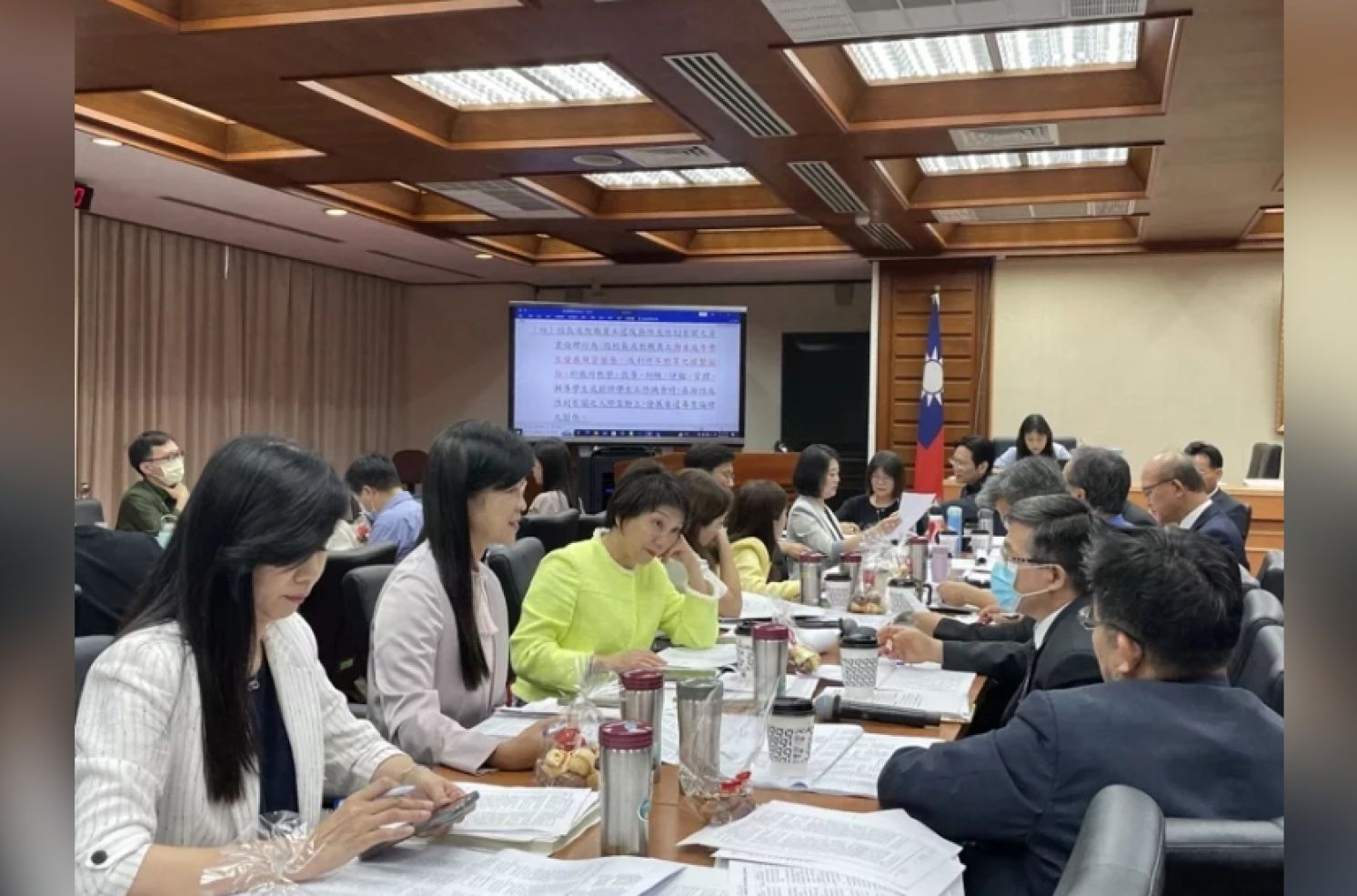
University Faculty-Student Relationships Should Not Be Regulated Haphazardly
By Liao Yuan-hao
United Daily News, July 22, 2023
Amidst the ongoing #MeToo movement, the Executive Yuan has unexpectedly introduced a draft amendment to the "Gender Equity Education Act." One of the most eye-catching aspects is its claim to regulate "faculty-student relationships" on campuses. While the author supports universities having autonomous regulations for such relationships, a closer examination of the draft reveals several inadequacies. Hasty approval of this draft would undoubtedly lead to disaster. Three points of concern merit thoughtful consideration by relevant authorities.
Constitutionality Debate: Attempting to regulate what is commonly referred to as "faculty-student relationships" within universities through legislation raises two constitutional issues.
First, Judicial Interpretation No. 791 once declared the criminal punishment for adultery in the Criminal Code unconstitutional, citing the protection of "sexual autonomy rights." The grand justices determined that "sexual autonomy rights are inseparable from personal dignity," and any restriction on sexual autonomy should be subject to stricter scrutiny based on proportionality. Elevating sexual autonomy to such a level may render any flawed regulations susceptible to constitutional challenges. Given the draft's current rudimentary state, it may encounter difficulties surviving the constitutional review.
Second, matters concerning teaching and learning within universities fall under the scope of university autonomy and, in principle, should be regulated by universities themselves without excessive interference from state laws. However, the draft ambiguously defines these relationships as "campus gender incidents" on par with sexual assault and harassment, granting the Ministry of Education the authority to impose nationwide prevention and control guidelines. In contrast to the United States, where universities autonomously consider and establish diverse and characteristic regulations, such top-down intervention may raise concerns about overstepping university autonomy.
Undefined Definitions and Confused Concepts: Managing the so-called “faculty-student relationships” poses the greatest challenge in terms of defining its scope. What constitutes a "faculty-student romance"? How does it differ from a "sexual relationship"? Which types of "romantic" or "sexual" interactions fall under regulation? Moreover, what is the scope of "faculty-student" in such relationships? Are these relationships restricted solely within the context of "course enrollment" or "academic guidance"? Can graduate students, serving as teaching assistants for undergraduate courses, develop romantic feelings for their students? Should individuals be penalized for having established sexual or romantic relationships before the faculty-student relationship began? These complex questions cannot be easily addressed through a few simple legal provisions, and it is challenging to expect the Ministry of Education to establish unified standards.
The current draft fails to effectively differentiate these controversies and leads to confusion of concepts. Instead of directly restricting "sexual relationships" or "romantic relationships" as American universities do, it uses the term "violating professional ethics." The issue, however, is that if a teacher does violate professional ethics, they should already be subject to regulations or sanctions. Is there a need for additional regulation here? If the individuals involved have a teaching or guidance relationship and there is a violation of ethical standards in the context of sex, it would typically constitute "sexual harassment," which makes this provision somewhat redundant.
If there were to be a ban on faculty-student relationships, it should address consensual and voluntary "mutual affection" relationships or romances that lack any form of transactional exchange or exploitation. This crucial distinction sets it apart from transactional forms of sexual harassment and necessitates careful handling. However, the draft fails to confront this aspect and instead attempts to regulate issues that could be addressed through existing measures against sexual harassment and professional ethics, leading to further confusion of concepts.
Apprehension Over Damaged Teacher-Student Interaction: The vagueness of the draft's definition poses a major issue, as it includes both "sexual harassment" and "gender bullying" as "campus gender-related incidents" subject to mandatory reporting and investigation. Consequently, any faculty member or staff who becomes aware of a suspected "campus gender-related incident" must report it within 24 hours and immediately trigger a gender equality investigation mechanism. With such provisions in place, it is inevitable that teachers and students, regardless of gender, would hesitate to engage in one-on-one discussions or seek advice. In today's era of gender diversity, even interactions among individuals of the same gender or in group settings can stir controversies. As a result, gender equality committee members are overwhelmed, and professors opt to keep their distance, avoiding students’ further inquiries on coursework outside of class.
Under the current sexual equality laws, where reports are required upon "awareness" and "suspicion," many teachers already feel caught up in a state of "White Terror," leading them to adopt a cautious approach and reduce their interactions with students outside the classroom. If the draft were to encompass the vague notion of "ethical violations related to sexuality" within the scope of mandatory reporting and investigation, then this chilling effect could further plunge teacher-student relationships into an icy freeze. The cherished notion of "teacher-student camaraderie" may soon find its place in oblivion.
The author is an associate professor at the Department of Law, National Chengchi University.